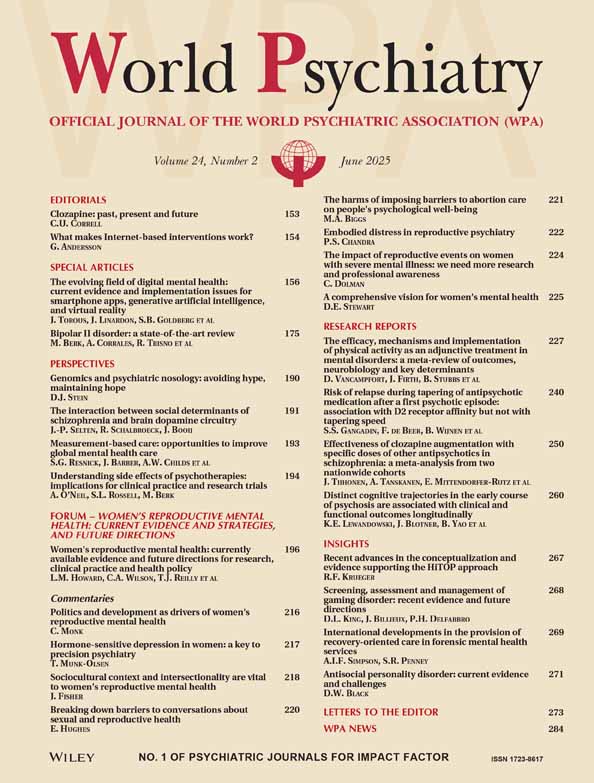Burnout in psychiatrists, general practitioners and surgeons
Burnout is a serious consequence of chronic exposure to work-related stressors. Three key dimensions of this response are emotional exhaustion, feelings of cynicism and detachment, as well as a sense of lack of personal accomplishment and ineffectiveness. According to research reports, 40–60% of general practitioners 1 and 46–93% of emergency physicians suffer from burnout 2. It has been suggested that some health workers are more prone to the burnout syndrome than others. In particular, it has been reported that psychiatrists may be more vulnerable to experiencing burnout than other physicians and surgeons 3.
We compared the level of burnout among 160 physicians (70 general practitioners working in public health centers, and 50 psychiatrists and 40 surgeons employed at university clinics). The assessment was carried out by the Maslach Burnout Inventory.
The total burnout score was moderate in all three examined groups. However, there were significant differences between the groups in the dimensions of burnout. General practitioners had a higher score for emotional exhaustion than the other two groups (F=5.546, df=156, pmeno0.01). Surgeons had the highest depersonalization (F=15.314, df=156, pmeno0.01) and the lowest personal accomplishment score (F=16.079, df=156, pmeno0.01). Psychiatrists had the lowest and surgeons the highest total burnout score.
Physicians with greater daily number of patients were more prone to emotional exhaustion but had higher sense of personal accomplishment. Older physicians with more years of practice and greater daily numbers of patients were less prone to depersonalization. There was no statistically significant gender difference on the total burnout score, but emotional exhaustion was higher in women (t=-3.460, pmeno;0.01) and lack of personal accomplishment in men (t=-2.132, pmeno0.05).
These findings, which in general are in line with previous reports concerning correlates of burnout in the medical profession, do not confirm that psychiatrists are at higher risk for burnout than other physicians. Although the sample size was small and the design cross-sectional, this study may be of interest, because the perception that psychiatry is a particularly distressing medical specialty may contribute to the current decline in recruitment of young doctors into the profession 4,5,6,7.
ERRATUM
It has been brought to our attention that in Table 4 of the paper “Metabolic syndrome in people with schizophrenia: a review”, by de Hert et al, published in the February 2009 issue of World Psychiatry, there was a factual error: in the study by Saddichha et al, listed in the table, the number of patients was 99 instead of 433, and the prevalence of metabolic syndrome was 18.2% instead of 34.0%.




